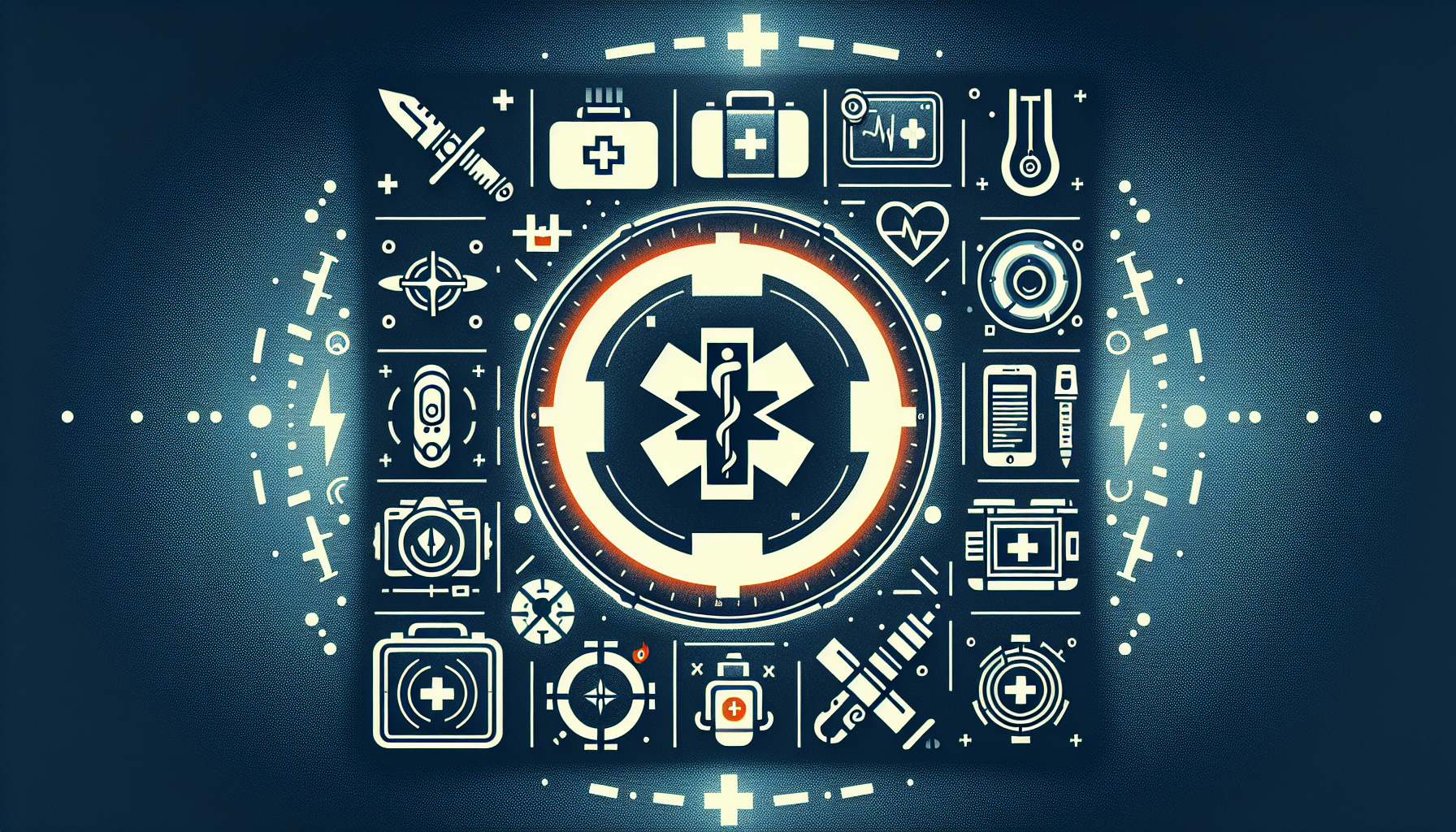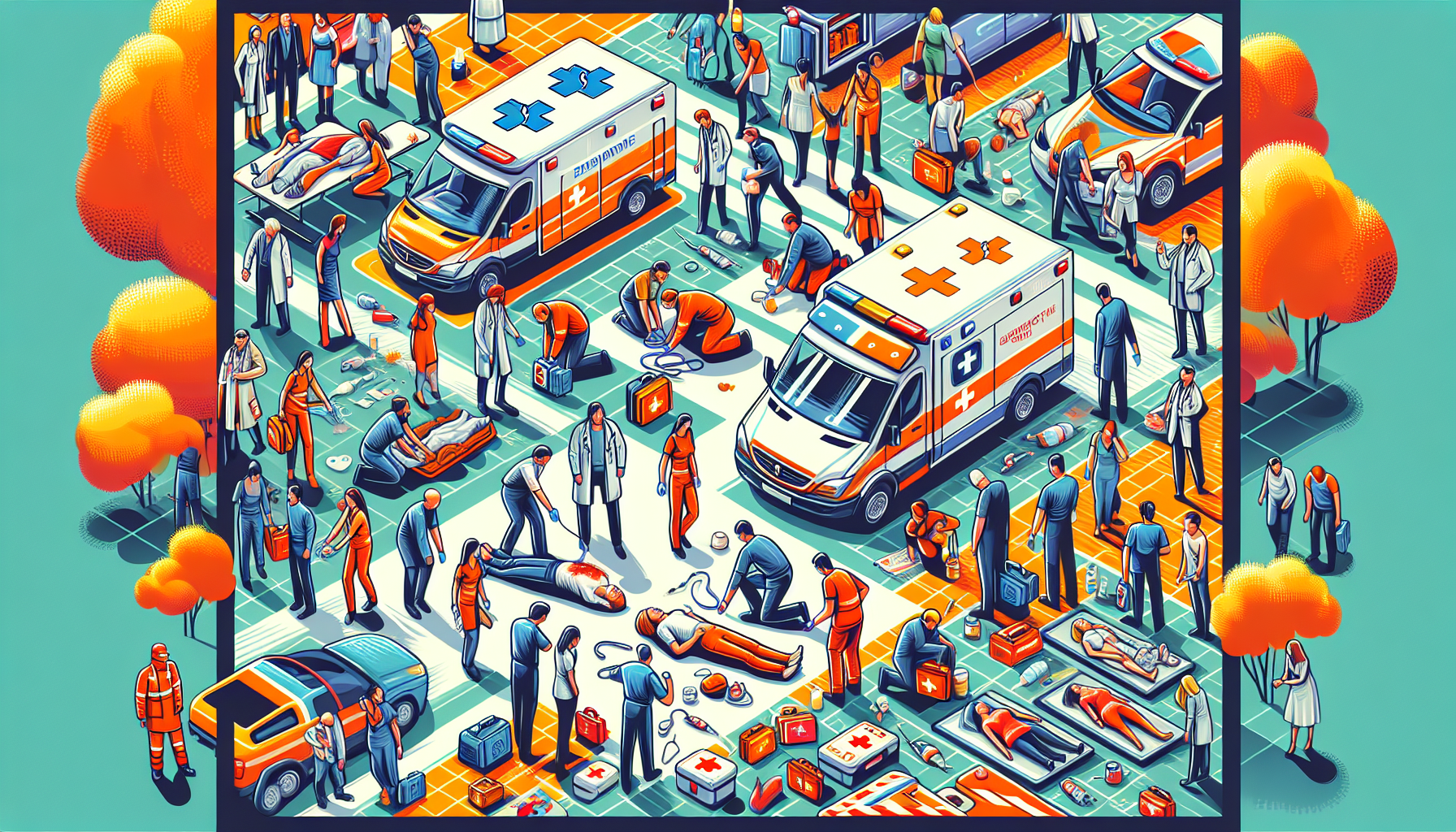What To Do In A Power Outage: Tips For Emergency Preparedness
What to do in a power outage? Imagine you are sitting at home, enjoying a peaceful evening, when suddenly, the lights flicker and everything plunges into darkness. A power outage can happen unexpectedly, throwing us into unfamiliar territory and leaving us feeling helpless. However, with a little preparedness and some practical tips, you can navigate through these situations with ease and ensure the safety of yourself and your loved ones. In this article, we will explore some valuable advice on what to do during a power outage, equipping you with the knowledge to remain calm, stay safe, and minimize the impact of the situation.

What To Do In A Power Outage
Safety Precautions During a Power Outage
Stay calm and assess the situation
During a power outage, it is important to stay calm and assess the situation before taking any action. Panicking can lead to hasty decisions that may compromise your safety. Take a moment to gather your thoughts and evaluate the extent of the power outage.
Check the neighborhood for signs of power outage
Before assuming that the power outage is only affecting your household, it is advisable to check the neighborhood for signs of power loss. Look for streetlights, neighboring houses, or any other visible signs of electricity to determine the magnitude of the outage. If you notice that everyone around you is also experiencing a power outage, it is likely a widespread issue.
Unplug sensitive electronic devices
To avoid potential damage to your sensitive electronic devices, it is crucial to unplug them during a power outage. Sudden power surges or fluctuations can occur when the power is restored, which may harm your electronics. Unplugging these devices also reduces the risk of electrical fires.
Use flashlights and avoid candles
When it comes to lighting during a power outage, it is safer to rely on flashlights rather than candles. Candles pose a fire hazard if left unattended or if they accidentally tip over. Flashlights, on the other hand, provide a reliable and safe source of light. Remember to keep extra batteries on hand to ensure you have enough light throughout the outage.
Keep refrigerator and freezer closed
During a power outage, it is important to keep your refrigerator and freezer closed as much as possible. This will help maintain the cool temperature inside and prevent your perishable food from spoiling quickly. Opening the refrigerator or freezer frequently allows warm air to enter, which can cause the food to spoil faster. Only open the doors when necessary, and take out what you need quickly to minimize the warm air entering the appliance.
Emergency Lighting Options
Flashlights with extra batteries
Flashlights are an essential item to have during a power outage. Make sure to have multiple flashlights available, and keep extra batteries in stock. This way, you can have a reliable source of light whenever needed. Consider distributing flashlights throughout your home and in easy-to-access locations so that you can easily find them in the dark.
LED lanterns or camping lights
LED lanterns or camping lights are also great options for emergency lighting. They provide brighter and longer-lasting illumination compared to traditional incandescent lanterns. LED lanterns are energy-efficient and can provide a good source of light for longer periods, making them ideal during extended power outages.
Glow sticks as temporary lighting
Glow sticks can serve as temporary lighting during a power outage. They are inexpensive and do not require batteries or power sources. Glow sticks are safe to use, especially in households with children, as they do not produce heat or pose a fire hazard. They can be easily activated by bending or shaking and can provide sufficient light for shorter durations.
Hand-crank or solar-powered flashlights
Hand-crank or solar-powered flashlights are excellent options for sustainable emergency lighting. Hand-crank flashlights can be powered by simply winding the crank, while solar-powered flashlights are charged using solar energy. These alternative power sources ensure that you have a reliable and renewable source of light during a power outage.
Emergency candles as backup lighting
While it is generally recommended to avoid using candles during a power outage, having a few emergency candles as a backup option can be beneficial. In case you run out of flashlight batteries or other lighting options, emergency candles can provide a temporary source of light. However, it is essential to exercise caution when using candles and never leave them unattended.
Managing Food and Water Supply
Keep a stock of non-perishable food items
During a power outage, it is crucial to have a stock of non-perishable food items that do not require refrigeration or cooking. These items can include canned goods, granola bars, peanut butter, dried fruits, and nuts. Make sure to regularly check the expiration dates and rotate the stock to ensure freshness.
Consume perishable food items first
If you have perishable food items in your refrigerator or freezer, prioritize consuming them before they spoil. Start with the items that are most likely to perish quickly, such as dairy products, meat, and fresh produce. Remember to use good judgment and rely on your senses to determine if the food is still safe to eat.
Use coolers or ice to prevent food spoilage
To prolong the freshness of perishable food items during a power outage, consider using coolers or ice. Transfer the food from your refrigerator to a cooler filled with ice or cold packs. This will help maintain a lower temperature and slow down the spoilage process. Avoid opening the cooler frequently to maintain the cold air inside.
Boil tap water before consumption
If you experience a power outage, it is important to ensure the safety of your drinking water. During an outage, there is a possibility that water treatment facilities may not function properly. To kill any potential bacteria or pathogens, it is advisable to boil tap water before consumption. Boil the water for at least one minute, then allow it to cool before drinking or using it for cooking or brushing teeth.
Stay hydrated and limit water usage
During a power outage, it is crucial to stay hydrated by drinking an adequate amount of water. Keep in mind that without power, you may not have access to your regular water supply. Therefore, it is important to conserve water and use it wisely. Limit non-essential water usage, such as washing dishes or taking lengthy showers, to preserve your water supply for drinking and other essential needs.
Staying Warm in Cold Weather
Gather blankets, sleeping bags, and warm clothing
During a power outage in cold weather, it is important to stay warm to prevent hypothermia and other cold-related illnesses. Gather blankets, sleeping bags, and warm clothing to layer and insulate your body. Dress in multiple layers, including thermal or woolen garments, to retain body heat.
Create a DIY heat source with clay pots and candles
In case of an extended power outage, you can create a simple DIY heat source using clay pots and candles. Place several candles in a shallow metal pan or clay pot. Then, cover the setup with an upside-down larger clay pot, leaving a small gap for ventilation. This makeshift heater can help provide localized warmth in a small space.
Use a portable camping heater
A portable camping heater can be an effective way to stay warm during a power outage in cold weather. These heaters are designed for outdoor use and are fueled by propane or butane. When using a portable heater, ensure proper ventilation, and strictly follow the manufacturer’s instructions to prevent carbon monoxide poisoning.
Stay in one room and close off unused spaces
During a power outage in cold weather, it is advisable to stay in one room and close off unused spaces to conserve heat. Choose a room with minimal exterior walls and windows, and close the doors to trap the warmth inside. If possible, hang blankets or use draft stoppers to seal any noticeable gaps or drafts around windows and doors.
Keep windows and doors sealed
To prevent cold drafts from entering your home during a power outage, make sure to keep windows and doors sealed. Use weatherstripping or draft stoppers to seal gaps and cracks around windows and doors. If necessary, cover windows with blankets or thick curtains to provide an extra layer of insulation.

Power Outage Communication Strategies
Have a charged portable power bank
Having a charged portable power bank is essential during a power outage. It allows you to keep your mobile devices charged, ensuring you have means of communication. Keep the power bank fully charged and consider purchasing a backup power bank if needed.
Use a battery-powered radio for updates
In situations where you are without electricity, a battery-powered radio can be a valuable source of information. Keep a battery-powered radio on hand along with extra batteries. Tune in to local emergency stations for updates on the power outage and any important instructions from authorities.
Prepare written emergency contact information
During a power outage, it is important to have written emergency contact information readily available. In case your mobile devices are not functioning or out of battery, having a physical copy of emergency contact numbers and important addresses will ensure you can reach out for help if needed.
Create a communication plan with family members
In preparation for a power outage, create a communication plan with your family members. Determine a designated meeting place and establish alternate methods of communication, such as text messaging or social media platforms, in case cellphone networks are affected. Regularly check in with one another to ensure everyone is safe and informed.
Inform neighbors and check on vulnerable individuals
During a power outage, it is important to reach out to your neighbors and inform them about the situation. Sharing information and supporting one another can foster a sense of community and aid in emergency preparedness. Additionally, check on vulnerable individuals, such as elderly neighbors or those with medical conditions, to ensure their well-being and offer assistance if needed.
Maintaining Personal Hygiene
Stock up on wet wipes and hand sanitizer
Maintaining personal hygiene can become challenging during a power outage. To overcome this, stock up on wet wipes and hand sanitizer. Wet wipes can be used for quick clean-ups and sanitizing surfaces, while hand sanitizer provides a convenient method to keep your hands clean when soap and water are not readily available.
Opt for dry shampoo and baby wipes
In the absence of electricity and running water, maintaining clean hair and personal hygiene can become difficult. Opt for dry shampoo as an alternative to traditional shampooing. Dry shampoo absorbs excess oils, leaving the hair refreshed. Additionally, keeping baby wipes on hand can help freshen up and maintain personal hygiene when bathing is not possible.
Use hand sanitizer or disinfecting sprays
Hand sanitizer and disinfecting sprays are excellent alternatives for handwashing and cleaning surfaces during a power outage. Apply hand sanitizer to your hands and rub them together until dry. Disinfecting sprays can be used on commonly touched surfaces to reduce the risk of spreading germs.
Boil water for cleaning purposes
When electricity is unavailable, boiling water can be used for cleaning purposes. Boil water on a portable stove or any alternative heat source, then allow it to cool before using it for cleaning dishes or wiping surfaces. Boiling water kills bacteria and ensures a safer environment for personal hygiene.
Plan for alternative bathroom arrangements
During a power outage, it is essential to plan for alternative bathroom arrangements if your regular plumbing is affected. Ensure you have backup solutions, such as portable toilets, buckets, or even a designated outdoor area. Stock up on toilet paper and other necessary supplies to maintain personal hygiene.
Handling Medical Needs
Keep a supply of essential medications
If you or a family member rely on essential medications, it is crucial to keep an ample supply during a power outage. Stock up on necessary medications to ensure you have enough to last throughout the outage. Regularly check the expiration dates and replace any expired medications.
Ensure proper storage for refrigerated medications
Some medications require refrigeration to maintain their effectiveness. In the event of a power outage, it is important to ensure the proper storage of refrigerated medications. Consider using cold packs or a cooler with ice to maintain the required temperature for these medications. Monitor the temperature regularly to ensure the medication remains safe for use.
Notify healthcare providers about the situation
In case of a power outage, it is advisable to notify your healthcare providers about the situation. They can provide guidance on how to handle your specific medical needs during the outage. Inform them about any concerns or issues with your medication supply or if you require alternative arrangements due to medical equipment reliance.
Create a medical emergency kit
Prepare a medical emergency kit that includes essential medical supplies and equipment. This may include bandages, disinfectants, prescription medications, spare batteries for medical devices, and other specific items relevant to your medical needs. Store the medical emergency kit in an easily accessible location and ensure it is regularly updated.
Consider backup options for medical equipment
If you rely on medical equipment that requires electricity, it is crucial to have backup options in place. Consider having a backup power source, such as a generator or battery-powered alternative, to ensure continuous operation of essential medical equipment during a power outage. Consult with your healthcare provider or medical equipment supplier for guidance on backup options.
Preventing Electrical Hazards
Avoid using generators indoors
Generators can be a lifesaver during a power outage, but it is important to use them safely. Never operate a generator indoors, including in garages or basements. Generators produce carbon monoxide gas, which is odorless and lethal. Place the generator outdoors in a well-ventilated area, away from doors, windows, and vents to prevent carbon monoxide poisoning.
Do not touch fallen power lines
If you encounter fallen power lines during a power outage, always assume they are energized and dangerous. Do not touch or approach them under any circumstances. Fallen power lines can still be live and pose a serious risk of electric shock or electrocution. Contact your local utility company immediately to report the fallen power lines.
Do not attempt electrical repairs without expertise
During a power outage, it may be tempting to try fixing electrical issues yourself. However, it is crucial to avoid attempting electrical repairs without proper expertise. Handling electrical wiring or appliances without knowledge can lead to serious injuries or electrical fires. Always contact a licensed electrician to handle any electrical repairs or issues.
Limit the use of extension cords
During a power outage, it is common to rely on extension cords to power essential devices. However, it is important to use them judiciously and avoid overloading them. Using multiple high-wattage devices on a single extension cord can cause overheating and pose a fire hazard. If necessary, consult with an electrician to assess your electrical needs and ensure safe usage of extension cords.
Be cautious while using alternative heating sources
When using alternative heating sources during a power outage, exercise caution to prevent fires or carbon monoxide poisoning. Follow all manufacturer’s instructions for the safe use of portable heaters, fireplaces, or other heating devices. Keep flammable items away from heating sources and never leave them unattended. Have a working carbon monoxide detector installed to monitor the indoor air quality.
Preparing for Extended Outages
Stock up on additional supplies and essentials
In anticipation of extended power outages, it is wise to stock up on additional supplies and essentials. This may include extra batteries, non-perishable food items, water, personal hygiene products, and other necessary items. Having a well-supplied emergency kit will ensure you are prepared for prolonged power outages.
Consider installing a backup generator
For homes or businesses frequently affected by power outages, installing a backup generator might be a viable solution. A backup generator can provide a continuous power supply during outages, allowing you to maintain essential functions and minimize inconvenience. Consult with a professional electrician to determine the most suitable backup generator for your needs.
Learn basic first aid and CPR techniques
During an extended power outage, access to emergency medical services may be limited or delayed. Therefore, it is advisable to learn basic first aid and CPR techniques. These skills can be crucial in emergencies and can potentially save lives. Consider taking a first aid and CPR course offered by local organizations or seek online resources to enhance your knowledge.
Plan for an alternative living arrangement
Preparing for extended power outages may involve planning for an alternative living arrangement. In certain situations, it may be necessary to temporarily relocate to a friend or family member’s home, a hotel, or a designated emergency shelter. Develop a contingency plan for such scenarios to ensure the safety and well-being of yourself and your family.
Evaluate insurance coverage for potential damages
In anticipation of extended power outages, it is important to evaluate your insurance coverage for potential damages. Review your homeowner’s or renter’s insurance policy to ensure it provides adequate coverage for losses caused by power outages, such as food spoilage, damage to electronic devices, or property damage from extreme weather conditions. Consider discussing your coverage needs with your insurance provider and adjust your policy if necessary.
Post Power Outage Checklist
Check appliances for any damage
After a power outage, it is crucial to inspect your appliances for any damage before using them again. Look for signs of electrical surges or malfunctioning components. If you notice any visible damage or suspect that an appliance might have been affected, have it inspected or repaired by a licensed professional before use.
Reset and adjust electronic devices
Once the power is restored, it is essential to reset and adjust your electronic devices. Some devices may require manual resetting or recalibration after a power outage to ensure optimal performance. Check the user manuals or contact the manufacturers for guidance on resetting your specific devices.
Restock emergency supplies for future use
After experiencing a power outage, take the opportunity to restock your emergency supplies. Replace any used or expired items in your emergency kits, such as batteries, food, water, and medications. This will help ensure that you are prepared for future power outages or other emergency situations that may arise.
Dispose of spoiled food properly
If any food items in your refrigerator or freezer have spoiled during the power outage, it is important to dispose of them properly. Spoiled or expired food can harbor bacteria and contribute to foodborne illnesses if consumed. Seal the spoiled food in a bag and dispose of it in a sealed container or in accordance with the guidelines provided by your local waste management services.
Learn from the experience and update preparedness plan
Lastly, take the opportunity to reflect on the power outage experience and learn from it. Assess how well-prepared you were and identify areas where you can improve your emergency preparedness. Update your preparedness plan accordingly, considering any lessons learned from the power outage. This will help you be better equipped for future power outages and emergency situations.
By following these safety precautions and implementing these strategies, you can navigate power outages more effectively and ensure the well-being of yourself and your loved ones. Remember to stay calm, be prepared, and prioritize safety during any emergency situation.




